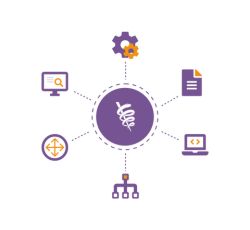Denial Management in Medical Billing
Denial management is one of the important processes in medical billing because it makes sure that the providers of health services get appropriate reimbursement. Denial of insurance claims means loss of revenue, extra administrative burden, and delayed payment. This will involve identification of the root causes of denial, error correction, appeal when the claim is declined, and strategy to prevent reoccurring denials. Proper management of denials ensures that one identifies the root causes of those denials, appeals claims that were denied, and then shows measures to eliminate other further denials.
What is Denial Management?
Denial management is the process of analyzing and resolving denied insurance claims to ensure maximum reimbursement for healthcare providers. Denial management is not claim rejection, however. Claim rejection takes place when a claim contains errors or omissions and is never processed by the company. A denied claim is a processed claim that the insurance company does not want to pay for particular reasons.
.png_1743081437.png)
Importance of Denial Management
Claim denials can lead to severe financial issues for healthcare providers. If the denied claims are not managed well, providers will lose a huge amount of money and face cash flow problems. Denial management helps healthcare providers recover lost revenue, reduce administrative work, and improve financial stability.
1. Revenue Maximization
Many of the denied claims can be rectified and re-submitted for payment. Effective denial management means that no healthcare provider should have to forgo money unnecessarily as a result of avoidable mistakes.
2. Reduction in Administrative Work
Resubmission and fixing denied claims require a lot of time. Denial management structure helps in cutting down additional workload and instead directs attention toward more important aspects: patient care.
3. Better Cash Flow
Fewer denials mean that providers get paid faster, which results in better financial stability and smoother operations.
4. Improves Compliance
Denial tracking helps providers comply with the rules and regulations of the insurance. It reduces the risk of future claim issues and ensures compliance with billing policies.
5. Prevents Future Denials
Understanding the common reasons for claim denials helps providers take preventive measures to avoid similar issues in the future.
Common Reasons for Claim Rejections
1. Absence of or Mismatched Information
Incorrect patient information, insurance numbers, or medical codes can result in rejection. A little mistake takes the claim into denial.
2. Duplicate Claims
Submission of the same claim more than once without proper documentation results in automatic rejection.
3. Medical Necessity
Claims are denied on the grounds of unnecessary treatment based on the insurer's policies.
4. Failure to Obtain Pre-Authorization
Some treatments and services require authorization from insurance companies before service is rendered. Lack of authorization results in a claim denial.
5. Time for Filing
Each insurance company has a specific date by which the claim should be filed. Should a claim be made after that date, it is automatically denied.
6. COB Issue
Patients with several insurance plans have a high possibility of denial based on the weak coordination of respective insurance companies.
7. Non-Covered Services
Treatment or procedure not covered under the patient's insurance is denied.
8. Incorrect CPT, ICD-10, HCPCS coding
Incorrect coding using CPT, ICD-10, HCPCS, or missing modifier results in a claim denial.
9. Bundling Issues
Some procedures are charged together under the rules of insurance. Charged separately, the claim is likely to be denied.
10. Out-of-Network Provider Issues
A claim is received that is either denied or paid at a lower rate if the care provider is out of the patient's insurance network.
Challenges in Managing Denial
1. A High Number of Denials: Most health facilities receive thousands and thousands of denial claims every other day. An individual working here would need considerable time and staff to keep this on track.
2. Long Insurance Plans: Most patients spend a long period trying to explain lengthy insurance plans they have subscribed to. Different insurance companies have varying rules and requirements for the approval of claims. A treatment covered by one insurer may be denied by another. These complex and changing policies make it difficult for providers to have a standardized process for submitting claims.
3. Limited Resources: Small healthcare providers lack the necessary staff and advanced software to deal with denied claims appropriately. Without the right resources, they may not be able to identify issues, correct errors, or resubmit claims in time, leading to further revenue losses.
4. Slow Appeal Process: When a claim is denied, an appeal is initiated by providers but the appeals take a lot of time and may require a complicated procedure. Review of appeals from the insurance company's side can consume a lot of time, hence a delay in paying the cash due to lack of cash flow, and the provider is never paid entirely.
5. Frequent Changes in Coding: Medical codes like ICD-10, CPT, and HCPCS are updated from time to time. The billing staff needs continuous training to be updated with these changes. In case outdated or incorrect codes are used in a claim, it will probably be denied, which requires extra work to correct and resubmit the claim.
How Meru Accounting Assists with Denial Management
Denial Tracking and Analysis
Meru Accounting closely monitors all denied claims to identify common reasons for denials. They help providers make solutions that can prevent such problems from arising again in the future by analyzing the patterns.
Claim Corrections and Re-submission
Our team examines denied claims, corrects the errors that may have occurred, and resubmits them speedily. This helps ensure the timely release of payments to the providers.
Appeal Management
We prepare and file the appeal document for the wrongfully denied claims. We are sure to include all the necessary information to ensure a high probability of acceptance and reimbursement.
Automated Billing Solutions
With Meru Accounting using advanced billing software, providers will be able to automate the process of denial management. Automation diminishes human error, accelerates the processing time of claims, and ensures the timely resubmission of those claims.
Staff Training and Compliance Checks
With Meru Accounting, billing staff is trained for knowledge upgradation concerning insurance policies, changes in medical coding, and compliance guidelines, hence reducing the risks of future denials and sending claims correctly on the first instance.
Conclusion
Effective denial management is essential in medical billing to ensure healthcare providers receive the correct reimbursement. Understanding common denial reasons, following best practices, and using professional services can help reduce denials and improve cash flow. It also simplifies the process, allowing providers to focus on quality patient care with support from Meru Accounting. We ensure the saving of time and reduce the administrative burden on the healthcare provider's financial stability.
Our Bookkeeping And Writeup Process

Your Need
Search the Service You need

Enquiry
For enquiring make a call or mail us

Confirm
Get your Quote and confirm us

Stay Calm
Feel free and Relax Yourself

Effective budgeting and forecasting are crucial elements of strategic financial management, offering a structured pathway to business success.
Read MoreStarting a new business is exciting and it’s full of opportunities and challenges. At Meru Accounting, we understand the complexity involved and we provide comprehensive Business Start-Up ...
Read MoreCost control and reduction strategies are important elements of any organization's financial management structure. In the competitive marketplace, businesses must precisely manage their expe...
Read More
Due diligence services refer to a set of investigative procedures and assessments conducted by professionals, typically in accounting, finance, law, or consulting fields, to evaluate a business,...
Read More
Risk management is a crucial process employed by organizations to identify, assess, and prioritize potential risks that could hinder their objectives.
Read More
Business Process Optimization (BPO) is a strategic approach aimed at enhancing efficiency, reducing costs, and improving overall performance within organizations.
Read More
Financial restructuring is a strategic process that involves reorganizing a company’s financial framework to improve its stability and performance.
Read More
Although launching a business is an exciting endeavour, there are risks and difficulties associated with it. Effective financial management is essential to the success of every start-up, and it ...
Read More
Performance and improvement consulting is pivotal for businesses seeking to optimize operations and achieve sustainable growth.
Read More
Forensic accounting is a specialized area of accounting that involves investigation of financial records to detect fraud, theft, or other financial crimes.
Read More
Software implementation is a vital phase in the lifecycle of any software application. It involves a series of steps designed to ensure that the software is correctly installed and configured to...
Read More
Project accounting is a specialized branch of accounting that focuses on tracking and managing the financial aspects of a specific project throughout its lifecycle.
Read More
In the modern business environment, companies are increasingly recognizing the importance of nurturing not just the professional growth but also the financial well-being of their employees.
Read More
Handling accounts payable is an essential part of managing a business’s finances. It involves tracking and paying invoices, maintaining good vendor relationships, and ensuring cash flow re...
Read More
Medical billing plays a very central role in the healthcare area.
Read More
Patient registration is the first and the most important when a person steps into a hospital, clinic, or any medical facility.
Read More
Insurance verification is among the most integral steps in medical billing. Before providing even a single health service,
Read More
Medical coding refers to the procedure of converting diagnoses, procedures, medical service, and other forms of medical equipment into...
Read More
Claim submission is one of the key processes in health care because this ensures that service providers get remunerated on time.
Read More
Payment posting would be one of the most significant steps in any medical billing cycle so that healthcare providers will get paid for...
Read More
Denial management is one of the important processes in medical billing because it makes sure that the providers of health services...
Read More
Reporting and analytics are crucial parts of medical billing. They will help healthcare providers follow up on the financial performan...
Read More

